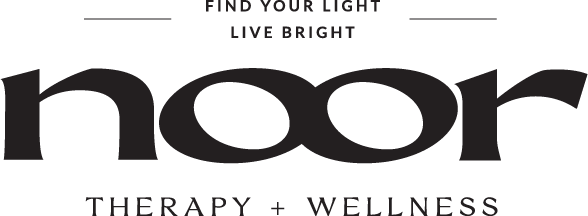The Grief We Inherit: On Intergenerational Trauma and Intergenerational Healing
“What’s been harder for me than watching the genocide of my people on my phone every day is watching my Palestinian father watch it.”
A client said this to me in session recently, and the words landed with a quiet devastation. My throat tightened. My chest ached. In my mind, I saw my own father’s face; his silence, his grief, his eyes fixed on the news, his whole body carrying a weight too heavy to name.
It’s a particular kind of heartbreak, not only to witness violence against your people in real time, but to watch your parent relive the loss of a homeland they’ve already mourned a thousand times. To watch a father who once fled, survived, or witnessed displacement… now watch it unfold again.
This is what it means to carry intergenerational trauma. And this is why intergenerational healing matters so deeply.
What is Intergenerational Trauma?
Intergenerational trauma is the pain, fear, and survival responses passed down through families and communities, often without words, somewhat like an invisible inheritance. It’s not just about the traumatic events themselves, but about how those events shape the way we see the world, protect ourselves, and relate to one another.
It can be passed on in many ways:
Behavioral: You might find yourself carrying hypervigilance, always scanning for danger, or feeling pressure to be perfect and overachieve, to prove your worth in a world that often questions your belonging. You might suppress your feelings to protect family members from additional pain or conflict, as many children of immigrants learn.
Relational: Attachment wounds can arise from families separated by migration, political conflict, or trauma. You may notice patterns of emotional distance, difficulty asking for help, or feeling caught between different cultural expectations, what we sometimes call code-switching between the identities of your parents’ culture and the dominant culture you live in.
Structural: The systems that shaped your parents’ and grandparents’ experiences, including displacement, racism, and colonialism, may still affect your life today through economic hardship, immigration barriers, or experiences of marginalization in your community.
Biological/Epigenetic: Trauma can literally change how our bodies respond to stress, creating inherited patterns of anxiety, exhaustion, or hyperarousal, even if we don’t fully understand why we feel this way.
For Palestinians, and for so many other communities impacted by historical oppression, this trauma is not in the past; it is ongoing, which makes the burden even heavier.
What is Intergenerational Healing?
If intergenerational trauma is an inheritance we never asked for, intergenerational healing is the gift we can choose to pass forward.
It’s about intentionally interrupting harmful cycles, while protecting and amplifying the resilience, culture, and love that have also been passed down.
This can look like:
Repairing relationships within families and communities
Reclaiming language, traditions, and identity that were erased or suppressed
Challenging systemic oppression that perpetuates harm
Creating new narratives that center resilience, dignity, and agency
When we heal, we don’t erase what happened. We learn to hold it differently, so it no longer dictates our every move or silently shapes the lives of those who come after us.
How Therapy Can Support Intergenerational Healing
Therapy isn’t about “fixing” you because you are not broken. It’s about giving you the space and tools to understand what you’re carrying, and to decide what you want to pass forward.
In therapy, you can:
Name the patterns you’ve inherited and see how they show up in your life
Explore how your family’s migration story influences your sense of self, or unpack the pressures of navigating multiple cultural worlds
Learn tools to regulate your nervous system so you’re not always in survival mode
Practice setting boundaries that honor both your cultural values and your individual needs
Repairing relationships with clearer communication
Have a space to mourn collective losses and ancestral grief, in ways that feel safe and supported.
Sometimes, the most radical thing we can do for the generations before us is to rest, to soften, to feel safe in our own skin, because they didn’t have the privilege.
A Message of Hope
If you are carrying intergenerational trauma, I want you to know: the cycle does not have to continue.
Healing yourself ripples outward, touching your family, your children, your community, and even your ancestors. You are not just the sum of what has happened to you or your family. You are also the bridge to what comes next. And when you take steps toward healing, you are quietly and powerfully changing the future.
As a Palestinian therapist, I do this work not just professionally, but personally. I know what it’s like to carry pain that isn’t entirely mine, yet lives inside me anyway. If you’re holding this kind of pain, the quiet kind, the inherited kind, the kind that sharpens when you see someone you love hurting, you are not alone. This work is hard, but it’s also sacred. And healing, though never linear, is always possible… even when we carry generations of sorrow in our bones.
You can book a free consultation with me here: https://calendly.com/therapywithnichole/15-min?month=2025-06
Written by: Nichole Abdallah, AMFT
Nichole is a second-generation Palestinian-Latina Registered Associate Marriage and Family Therapist at Noor Therapy and Wellness who helps adult children of immigrants reclaim their cultural identities, navigate intergenerational trauma, and find a sense of belonging.


